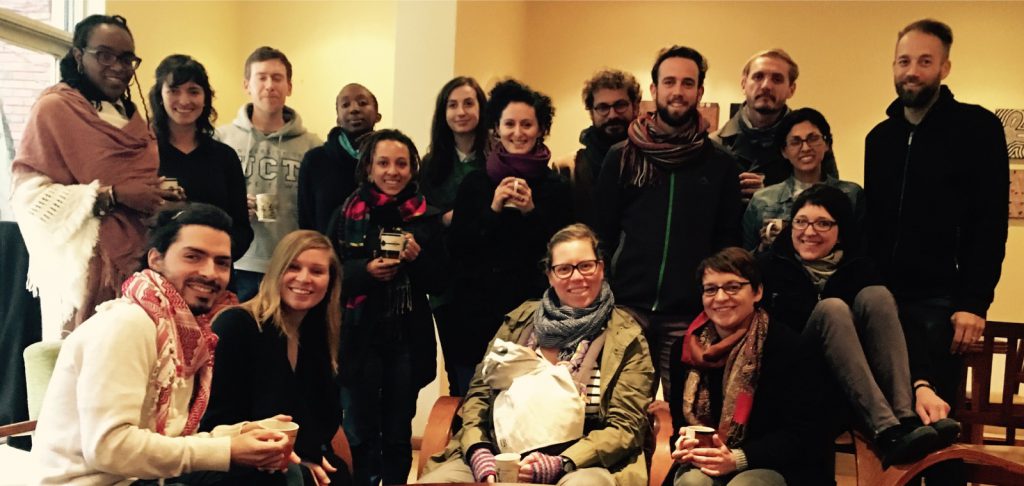Report back: The Aesthetical and the Political of Unequal Geographies
Seventeen of us gathered for the second offering of the ACC PhD seminar on Democratic Practices at ACC, UCT (4-8 July 2016). This year we sought to problematize the relationship between the political and aesthetics, and through a discussion scaffolded by Ranciere’s distribution of the sensible. While we endured the Cape Town winter in layers upon layers of clothing, our minds, in stark contrast, were coming undone; divesting and spinning many threads provoked by discussions across the different theoretical backgrounds and field-sites that we all brought to the table. From this unanticipated assembling we made sure food security could speak to waste management, coconuts could speak to urban fiscal management, Antigone could say that Nairobi was a stranger to itself and Port Elizabeth museums could recognize the corporeal memories embedded within b-boying sessions in the Cape Flats.

The participants in the seminar Democratic Practices of Unequal Geographies at ACC, UCT, Cape Town, 4-8 July 2016.
In working to suture these sites and ideas, from North and South, often considered irreconcilable (and inevitably prompted by the imperial convention that affirms North to South as the only fertile direction for scholarship to flow), many uneven geographies would affix themselves to unexpected questions instigated by this simultaneous reading of political theory and global south urbanism. For example: What would Walter Benjamin think about Black Instagram artists in Joburg? What ‘police orders’ are found in Congolese popular music? Can one discern homo-nationalisms in the creation of Freedom Park? Finally, and more grounded in the location we called home for the whole week: Would the aesthetic regimes of Cape Town hear Aunt Hester’s scream?
Our own existentialist crises aside (and there were many), we were able to build on a very rewarding seminar of deep theoretical attention and collegial exchange to move our own scholarship(s) in more concrete directions.
Many thanks to the organizers, Henrik and Andres, and we look forward to the next year!


